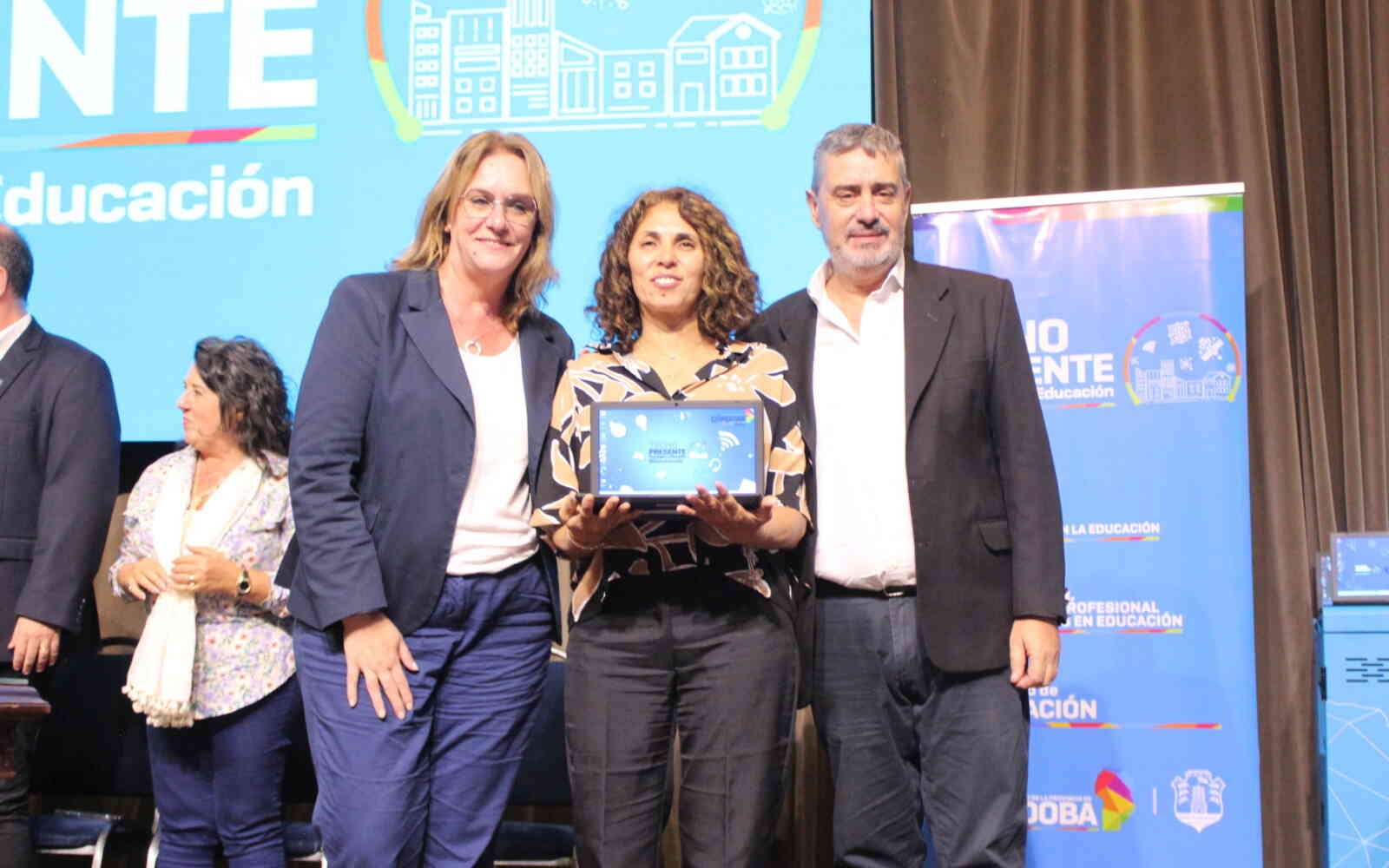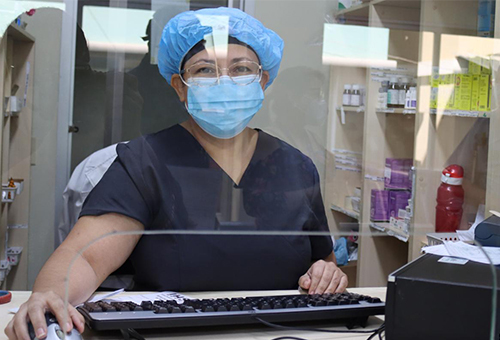The United Nations Office for Project Services (UNOPS)

Learning to hear: A story from Guatemala City
While the people of Guatemala have universal access to healthcare, needs are not always met. Guatemala’s public healthcare system is challenged with limited resources, an increasing number of patients, high medical and treatment costs, and poor infrastructure.
For children, healthcare coverage has been faced with inequalities and has been dependent on family socio-economic levels. But efforts are being made to reduce inequalities and ensure all children have the opportunity to receive specialized healthcare services they may need to thrive.
In Guatemala City’s Zone 15 lies Clínicas para Oír Mejor, a hearing clinic led by Dr. Luis Ramos Verdugo. The clinic provides public healthcare services for children and adults with significant hearing impairments.
Due to several institutional limitations, Guatemala’s Social Security Institute (IGSS) was unable to provide cochlear implants – electronic prosthetic devices that are surgically placed in the inner ear and under the skin behind the ear to provide perceptions of sound in the auditory nerve – to its clinics. Cochlear implants are best used for children with severe hearing impairments.
The gift of hearing
With UNOPS support, IGSS was able to obtain 40 of the devices for Clínicas para Oír Mejor. UNOPS further supervises and supports the surgeries as well as the corresponding therapy sessions at a clinic in Zone 13.
The clinic now offers a specialized programme for children who benefit most from this technology. Combined with regular therapy sessions, the cochlear implants are helping children improve their ability to hear.

The costs are high, however. Covered by IGSS, one implant and surgery costs around $40,000, which makes finding the right candidates integral to the programme’s success.
Early intervention and family engagement are two additional key factors for success, describes Dr. Verdugo: “Age is a very important factor. Another important factor in determining how much progress can be made is the family’s commitment. Parents need to provide encouragement at home.”
“But for some parents,” adds Dr. Verdugo, “hearing therapy becomes part of their lifestyle and they provide stimulation all the time.”
For Andrea, Fernando and Keily, this has meant an opportunity to hear their parents’ voices, children laughing and dogs barking.

Keily Guadalupe Osorio Joge
Five-year-old Keily was provided with an implant when she was four-and-a-half. Her mother, Paula Yasenia Joge Salvador, drives around 30 minutes from San José Pinula to bring her to therapy twice a week.
“I’m happy because we can see a big change with her […] She can now hear when a dog barks and she starts looking for it.” – Keily's mother, Paula Yasenia Joge Salvador
Fernando Misael Jiménez López
Fernando lives in Villa Nuevas where he attends kindergarten. He was given a cochlear implant a short time following his sixth birthday, and doctors say he has responded very well to the treatment.
“This brings great happiness for all, because who would not want the best for their son? We are all happy and excited. It is a new journey that we going to start, which is long, but here we go.” – Fernando’s mother, Olga Raquel López


Andrea Elizabeth Ajanel Chocojay
Andrea is a five-year-old girl from Palin Escuintla. Following her cochlear implant in summer of last year, she also does the recommended therapy twice a week and has full support from her family.
“It brings me a lot of joy [...] When she didn't have the implant, she was very calm, quiet, she liked to watch TV. Now with the implant she is more curious. She wants to know what happened to her. It was beautiful when she told me she could hear things and asked me ‘what is that?’ [...] It was a great emotion.” – Andrea’s father, José Federico Ajanel Cortez
Andrea, Fernando and Keily are just 3 of 25 children who have already received cochlear implants at Clínicas para Oír Mejor, and another 15 are scheduled for early 2020. The length of treatment and therapy will vary from child to child. But with continued support from IGSS, UNOPS and their families, these children, and many more, are given a chance at a brighter future.

About the project
Since 2016 – in an effort to improve the public health system – UNOPS has been working together with IGSS to improve transparency in public procurement, beginning with the acquisition of medicines and medical supplies, and later supporting wide-range institutional reform for IGSS.
Through this, UNOPS designed policies on sustainable procurement, infrastructure and project management, and trained 600 staff in public procurement and supply chain management.
The project further delivered significant savings for the government of Guatemala. Through 13 public tenders, UNOPS helped stock 114 hospitals and health centres across the country with 568 types of medicines, equaling around 450 million doses of medicine. Through the use of transparent and efficient procurement processes, the government estimated savings of around $270 million, reporting around 57 per cent savings on the purchase of medicines and 34 per cent savings on surgical medical supplies since they began working with UNOPS.
An estimated 3.2 million Guatemalans are benefiting from improved healthcare as a result. Importantly, the project has also left a legacy of transparency in a country with a high risk of corruption in public procurement and has helped lay the foundation for a more efficient and transparent future for procurement by IGSS.













